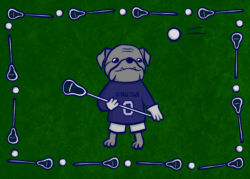Doping has gone too far. There, I said it. I can understand that in the modern world of sports, it is important to maintain an even playing field. In order to do so, it is necessary that athletes and equipment be tested in order to ensure that when the athletes take the field, the only things they take with them are their natural abilities and the product of years of intensive training and hard work. That means no pills, no “supplements,” no corked bats and certainly no bionic arms. And certainly, no sport is above the law. One by one, different events have adopted testing, a practice that has become more institutionalized. Records have been erased, and medals have been revoked.
And now, another timeless competition has been added to the list. Though it is one of the oldest games in history, it should nonetheless come as no surprise that this addition has only come recently. After all, it is Russia’s national pastime, and we all know that the Ruskies aren’t exactly sticklers for playing by the rules. That’s right, sports fans. The world of chess need no longer fear the hordes of super-human mutants, who used their ungodly strength and laser eye-beams to … um … well … wait a second. Oh! That’s right! Chess doesn’t actually require any physical exertion beyond moving the pieces, hitting the clock and doing a hell of a lot of furrowing of the brows. Of course, brow-furrowing was last year’s number one cause of forehead cramps. But I digress.
Chess’s world governing body, the World Chess Federation (FIDE) will introduce dope testing at the Asian Games, which will be held December 1-15, although even the sport’s top official in Doha said he had no idea how drugs could enhance chess performance. “I would not know which drug could possibly help a chess player to improve his game,” competition manager Yousuf Ahmad Ali said. The move is seen as a step by the FIDE towards establishing chess as an Olympic sport. I’m sure ESPN The Ocho will be all over that one.
Naturally, there are some drugs that a player could potentially take to increase his focus, concentration and overall alertness. Among them are some that you can only get on M Street. Also among them, however, is the hyperactive overachiever’s choice: good ol’ caffeine. The question remains, however, at what point the line should be drawn. Should Starbucks be contraband at all chess events?
There is also a question as to how prevalent the problem actually is, if it even exists to a significant degree. You don’t exactly pick up the Washington Post crisscrossed with headlines about players telekinetically moving pieces about the board nor about players who exhaust their allotted two hours per move because they just can’t get over how so very white one of their pawns is.
It makes one wonder how effective doping of any kind would be in a match. Would it provide that needed edge in finding a hole in an opponent’s strategy? Would it give a player the broad perspective necessary to see the entire board and how each move will affect every other? Would a prescription from Dr. Feelgood have put Gary Kasparov over Deeper Blue back in ’97 in what was literally man vs. machine? It’s hard to say, really. A matter like this may require further investigation…





